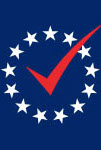Date Published: 2009-01-01
Author(s):
Thad E. Hall, University of UtahAbstract:
Executive Summary
The problems faced by overseas civilians, military personnel, and their dependents— individuals covered by the Uniformed and Overseas Citizens Absentee Voting Act (UOCAVA)— have existed since the nation’s founding. From the Civil War to today, there have been efforts to improve voting for military voters, often to little avail. Since the 1960s, there have also been efforts to address the voting needs of civilians living overseas and the dependents of military personnel to cast ballots. UOCAVA and its amendments are the latest in this history that attempted to improve the voting experience for these individuals.
Unfortunately, there is little high quality research today on UOCAVA voters generally, or military voters in particular. There are fewer than five academic articles that directly address the problems with these voters. These studies are all limited by the lack of quality data that would allow scholars and policy makers to systematically understand the types of problems faced by UOCAVA voters and the scope of these problems. Although there are data on the general issues faced by these voters, such as the issue of ballot transit for by-mail voting, there are not good data that carefully define these policy problems and attempt to identify policy solutions for these issues. The current data collection regimes need to be improved so that they are more useful to policy makers and policy analysts.
